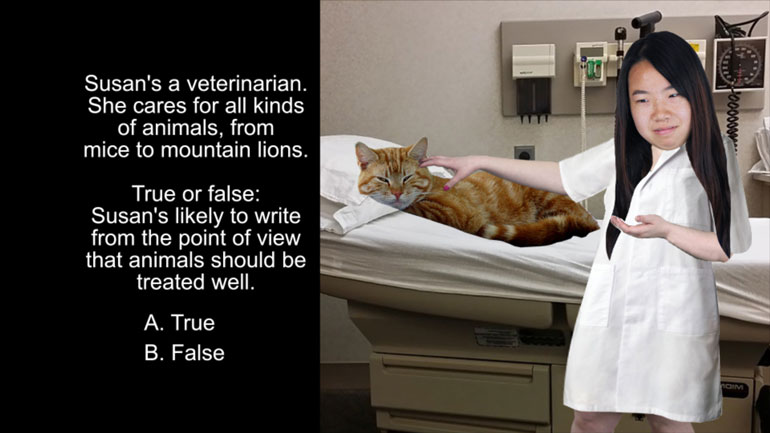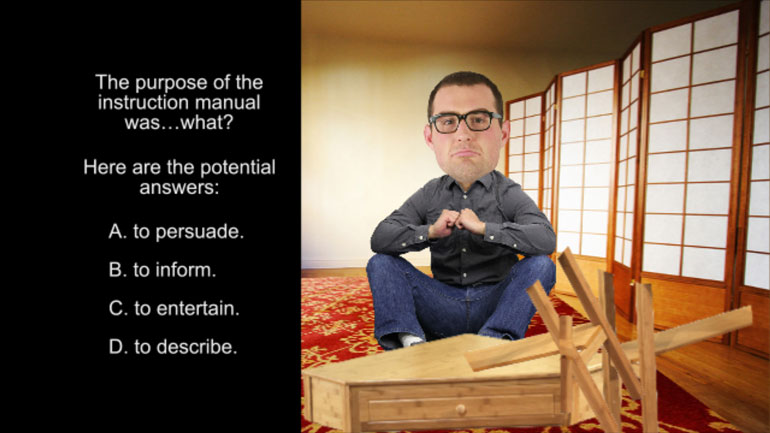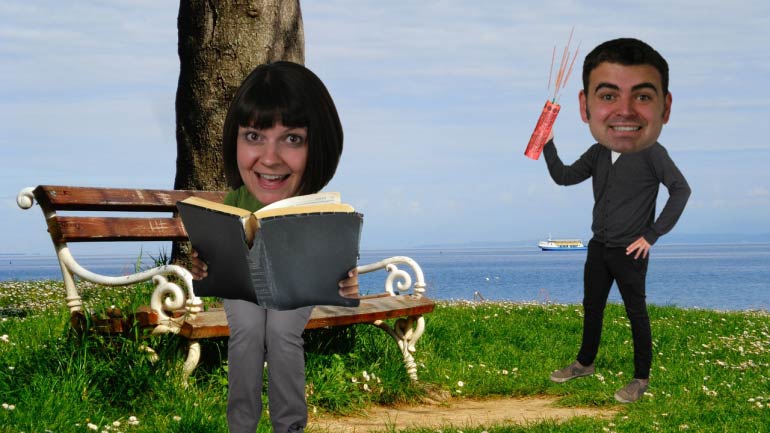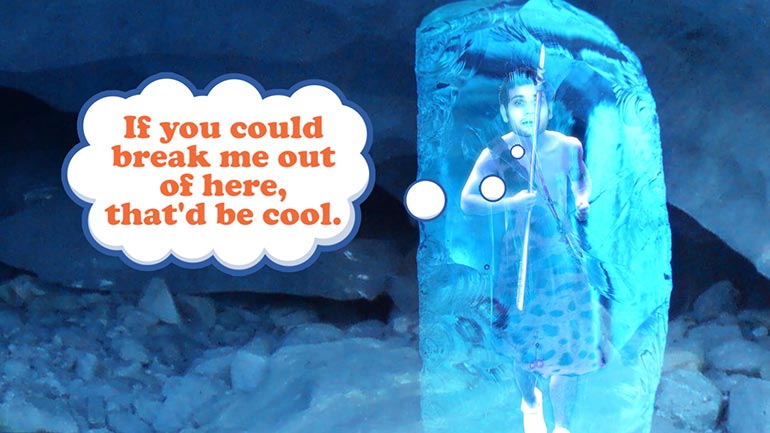ShmoopTube
Where Monty Python meets your 10th grade teacher.
Search Thousands of Shmoop Videos
ELA Drills, Beginner: Punctuation and Capitalization 3 66 Views
Share It!
Description:
ELA Drills, Beginner: Punctuation/Spelling. When do you absolutely need to use a comma in dialogue?
Transcript
- 00:03
Here's your shmoop du jour brought
- 00:05
to you by commas they might look like weird little bugs but well they're [Commas land on piece of paper]
- 00:09
pretty useful and you never have to worry about there being a common [Man moves couch and commas run around while man faints]
- 00:12
infestation in your home okay when you absolutely need to use a comma
- 00:16
in dialogue and your potential answers are when absolutely not option will give
Full Transcript
- 00:22
you a hint remember dialogue tags are those extra
- 00:25
few words that follow a bit of dialogue the he said at the end of blah blah blah [Man talking outside a cabin]
- 00:30
blah he said so what's the best way to separate your dialogue from the tags and
- 00:35
no using police state not unless your dialogue has murdered someone we got [Policeman blows whistle and puts up tape]
- 00:39
plenty options here so let's figure out which one is right when starting addy
- 00:43
know there are definitely times when a comma is necessary like some floppy hat
- 00:48
you can throw on whenever you like but it's totally optional it's more like a [Man with floppy hat looking into mirror]
- 00:52
safety helmet which though less stylish is definitely necessary in some
- 00:55
situations like had a safety helmet convention but he is gone what about C
- 01:00
it seems like a non idea how often do we ever see a comma at the start of a
- 01:05
sitting never that's when and if a comma tries to hide out there you can bet the [Girl studying on a sofa]
- 01:09
grammar police will be in in a flash put it back into place [Grammar police man places comma in sentence]
- 01:12
I eat somewhere else yeah so C is no good we're left with two very similar
- 01:17
options a and B both puts calm at the end of sins and for the dialogue tag but [Finger points to comma]
- 01:22
does it go before or after the quotation mark well according to the rules grammar
- 01:26
when your quotation ends with a dialogue tag you have to make sure your dialogue
- 01:30
ends with a comma just before the final quotation mark so B is the right answer
- 01:34
you might think it looks better the other way but then the rule piece when [Men studying at a table]
- 01:38
you start your own Society you can put commas wherever you like
Up Next
ELA Drills, Beginner: Point of View. Is the statement in the video true or false?
Related Videos
ELA Drills, Beginner: Textual Analysis 1. The purpose of the instruction manual was...what?
ELA Drills, Beginner: Point of View 3. Which sentence in the passage best shows the narrator's point of view on the topic of Chelsea Simpson?
We wanted to make a video about sedentary rocks, but we couldn't get lazy uncle Rocky off the couch. Oh well. We'll teach you about sedimentary roc...
Today we're bringing you the opposite of Jurassic Park—how living things become fossils. Okay okay, it might not be quite as fun...but hey, at le...




